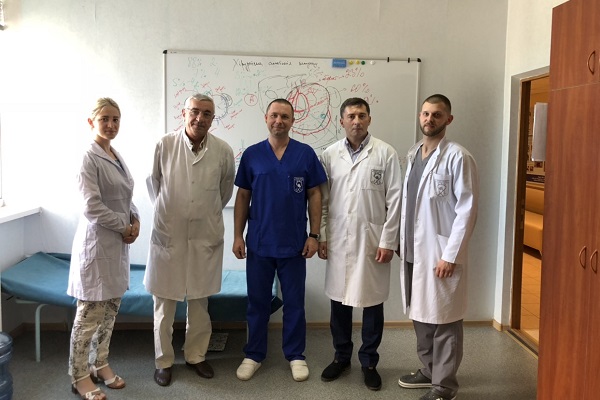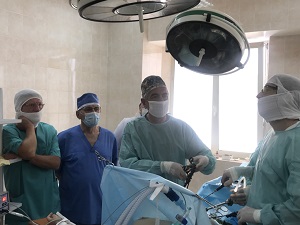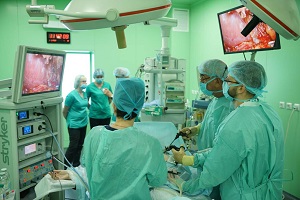The work of the Department of Surgery and Vascular Surgery of the Shupyk National Medical Academy of Postgraduate Education (the Chief of Department of Surgery and Vascular Surgery - S. Savoliuk (MD, Dr.Sc., Full Professor) in the new, 2019 year, started with a series of thematic improvement cycles "Selected Questions for Emergency Abdominal Surgery".

The 1 month curriculum provides an overview of current trends and approaches in the diagnosis and treatment of urgent pathology of the abdominal cavity and retroperitoneum, which built on the basis of existing standards and protocols in Ukraine, Europe and the United States. In the introductory lecture of the head of the Department of Surgery and Vascular Surgery S. Savoliuk (MD, Dr.Sc., Full Professor) was noted that globaly surgery, both urgent and planned, goes to the level of unification, standardization of protocols, in relation to standard operating procedures integrating the latest surgical techniques (laparoscopy, endoscopy, navigation puncture interventions and their combination in the form of hybrid operations), which allows to bring these operative interventions to a new high-quality orbit - to achieve high quality of life. Traditionally, materials were presented in the lecture about the implementation of Fast Track Surgery protocols and the use of electric welding of biological tissues in the routine work of the surgical clinic, which are the main scientific priorities of the department.

It has already become a good tradition to apply such a perspective direction of training in the educational process as master classes in the format of live surgery.
So this time, during the cycle of thematic improvement, the team of the Department of Surgery and Vascular Surgery conducted 2 master classes in Live Surgery that were devoted to the use of electric welding of biological tissues in the implementation of laparoscopic TAPP-hernioplasty (seamless non-fixation technique) and in the performance of laparoscopic cholecystectomy and appendectomy.

Application of scientific and practical directions in the format of live surgery in the program of thematic improvement cycles is undoubtedly a promising direction of training and involvement of specialists for training, both for the Department of Surgery and Vascular Surgery and for Shupyk National Medical Academy of Postgraduate Education in general, constantly supporting the image of NMAPO as a leader in medical postgraduate education.



